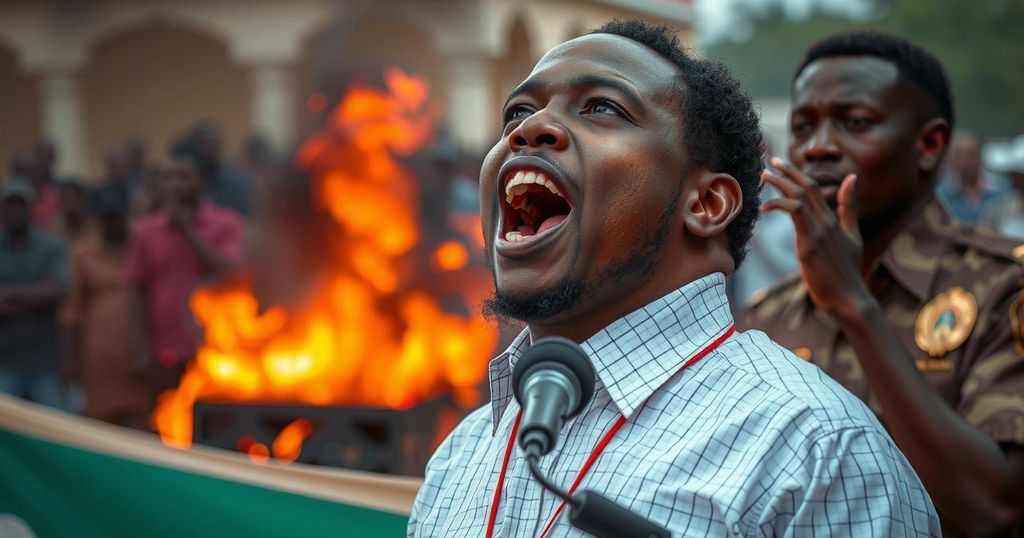Mozambique’s Electoral Violence Claims 21 Lives Following Court Ruling

Violence erupted in Mozambique after the Supreme Court confirmed Daniel Chapo as the winner of the disputed election. The aftermath has led to 21 fatalities, including two police officers, and numerous injuries, primarily due to protests by the supporters of losing candidate Venancio Mondlane.
Mozambique has plunged into chaos following a ruling by the nation’s highest court that declared Daniel Chapo, the candidate from the ruling Frelimo party, the official winner of the October 9 elections. The confirmation has ignited widespread protests characterized by violence and looting, reportedly resulting in the deaths of at least 21 individuals, including two members of the police force. Tascoal Ronda, the interior minister, disclosed that the violent incidents were primarily incited by supporters of Venancio Mondlane, the opposition candidate who garnered only 24% of the vote, compared to Chapo’s 65%. Authorities have recorded 236 separate acts of violence across the country within a single day.
The recent unrest in Mozambique stems from the controversial electoral process and the subsequent ruling by the Supreme Court regarding the presidential election results. The discontent among the public, particularly supporters of the losing candidate, intensified due to allegations of electoral fraud and unfair practices. These factors have resulted in a volatile atmosphere, exacerbated by the political divide within the nation. Understanding the historical context of Mozambique’s political climate is essential to grasp the implications of the recent events and the public’s response.
In summary, Mozambique faces severe unrest following the Supreme Court’s ruling in favor of Daniel Chapo as the victor of the disputed presidential election. The violent protests led by frustrated supporters of the opposition have resulted in multiple fatalities and injuries. As the situation develops, it underscores the fragility of peace and stability in Mozambique’s political landscape, emphasizing the need for dialogue and reform to address the grievances of the populace.
Original Source: www.nytimes.com







